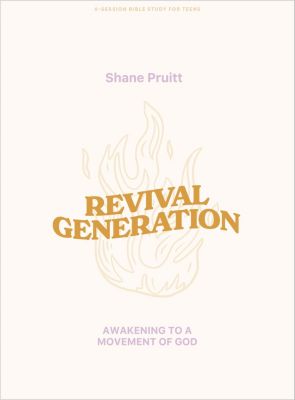
What is revival? And how do you know if what you’re experiencing is real revival or if it’s simply emotionalism?
By Shane Pruitt
“Our nation needs revival” is a completely true statement, but it’s also almost become a cliché. Often, it’s easier to point to the nation’s need for revival as though everyone else in our country needs it—but not us. However, our nation won’t see revival, until the churches in our nation see revival. And our churches won’t see revival until the individuals who make up the church see revival. Revival comes from God, but it starts by Him working on and through His people (2 Chronicles 7:14).
Anne Graham Lotz said it like this: “Revival begins when you draw a circle around yourself and make sure everything in that circle is right with God.” Each of us should be constantly asking ourselves: “What in my life needs to be made right with God?” May there be a personal revival, awakening, and renewal in my life. Then possibly I’ll see a corporate revival in others.
But it begs the question: “What is revival?”
Many people think revival is a feeling where your emotions are stirred with lots of crying, and “Holy Spirit goosebumps.” Of course, tears may be involved. But true revival is God’s people getting serious about worshiping Him above all and living out their true purpose of knowing Him and making Him known. Revival is God’s people awakening to their true calling. Basically, the Holy Spirit empowers and inspires people to get serious about following Jesus and obeying the Scriptures.
Revival is more than a feeling. It is an awakening.
Guess what? When God’s people get serious about following Jesus, obeying the Scriptures, and making Him known, then lives change, churches change, communities change, and nations change. Personal revival can lead to corporate revival which can lead to national revival.
In the Scriptures, there are words and practices associated with revival—words like worship, repentance, obedience, and holiness. I believe when God’s people are actively walking in these practices, you can be sure He is working in and through His people. It is how to know the difference between real revival and emotionalism.
“In the Scriptures, there are words and practices associated with revival—words like worship, repentance, obedience, and holiness.” — @shane_pruitt78 Click To TweetRevival is more than a feeling. It is worshiping God above all.
Most often when we hear the word “worship” we think of music—lifting our hands while singing along with a worship band. Now, obviously, that can be a form of worshiping God. However, worship is more than a song. Worship is placing your highest adoration and affection on someone or something. Basically, whatever or whoever is most important in your life is what or whom you’re worshiping. A movement of God will stir us to lay down our idols and worship God above all.
Revival is more than a feeling. It is walking in repentance.
When you hear the word “repentance” you may think of confessing sin or apologizing to God. Certainly, confessing sin and apologizing to God are a part of repentance. However, biblical repentance is much more than just those things. And it’s impossible to have revival without it. Repentance is rooted in the Greek word metanoia, which is a change of mind and change of heart that will lead to a change in lifestyle.
There are two forms of repentance in the Bible: repentance unto the Lord for salvation and constant repentance as a lifestyle of following Jesus. Daily, the Holy Spirit in you is changing your heart and mind to see sin the way your heavenly Father does. Revival is often preceded by repentance then continued through repentance. When God changes our hearts and changes our minds, He will also change our actions. When God is moving in our lives, He will also be removing sinful practices from our lives.
“Revival is often preceded by repentance then continued through repentance.” — @shane_pruitt78 Click To TweetRevival is more than a feeling. It is living in obedience.
The gospel doesn’t just call us from things (hell, death, sin, destruction). It also calls us to things (a relationship with the King, a kingdom, a mission, obedience). Following Jesus is all about obedience. In fact, one of the greatest expressions of worship is obedience.
Isaiah 6:8 is one of the most famous verses in the Bible. You’ve probably seen it on the back of a missions T-shirt before.
Then I heard the voice of the Lord asking:
Isaiah 6:8, CSB
Who will I send?
Who will go for us?
I said:
Here I am. Send me.
Often, the King saves us to send us. The King was calling for someone He could send to go tell people about Him. And Isaiah, in an act of obedience, says yes. As a follower of Jesus, saying, “No, Lord. No, King,” does not work. The moment you said yes to Jesus at salvation, yes became the only answer you could ever give Him again.
Obedience is hearing the calling of God on your life and acting on it. Often, the kingdom of God is expanded by one small step of obedience at a time. In following Jesus, our success is not massive results (that’s up to Him anyway); it’s in small acts of obedience. A movement of God happens when the people of God start living in full obedience to God.
“A movement of God happens when the people of God start living in full obedience to God.” — @shane_pruitt78 Click To TweetRevival is more than a feeling. It is desiring holiness.
Holiness is being set apart by God to live differently than the world around us. To be clear, holiness is completely a work of God in your life. He sets you apart instantaneously by saving you through the work of the gospel. Then, over time, through the sanctifying work of the Holy Spirit, you should begin to live differently. It’s an inside-out process. What’s on the inside should start becoming evident on the outside. A movement of God doesn’t mean you’ll be a perfect little angel trying to keep your halo on. However, the desire and power to live in holiness should be evident in your life.
Meaning, the Holy Spirit inside of you should be propelling you to be more like Christ every day. Of course, you’ll probably never walk on water or raise the dead. But over time, your character and love should look more and more like Him. Wayne Grudem said, “Be holy yourselves in all your conduct speaks of a pattern of life that transforms every day, every moment, every thought, every action.”
So, how do we experience revival, instead of emotionalism?
We don’t want emotionalism; we want an awakening. We want to see a movement of God that starts in each of us and spreads across this nation. However, you can’t manipulate or force revival to happen. G. Campbell Morgan said, “We cannot organize revival, but we can set our sails to catch the wind from heaven when God chooses to blow upon His people once again.” Revival ultimately is a work of God and only comes from His Spirit. However, we can be prepared so if God so chooses to pour out His Spirit upon us, we are ready.
Be sure to check out my brand new Bible study with Lifeway, Revival Generation.
For permission to republish this article, contact Marissa Postell Sullivan.

Shane Pruitt
Shane is the National Next Gen Director for the North American Mission Board (NAMB) and the author of 9 Common Lies Christians Believe and Calling Out the Called.












